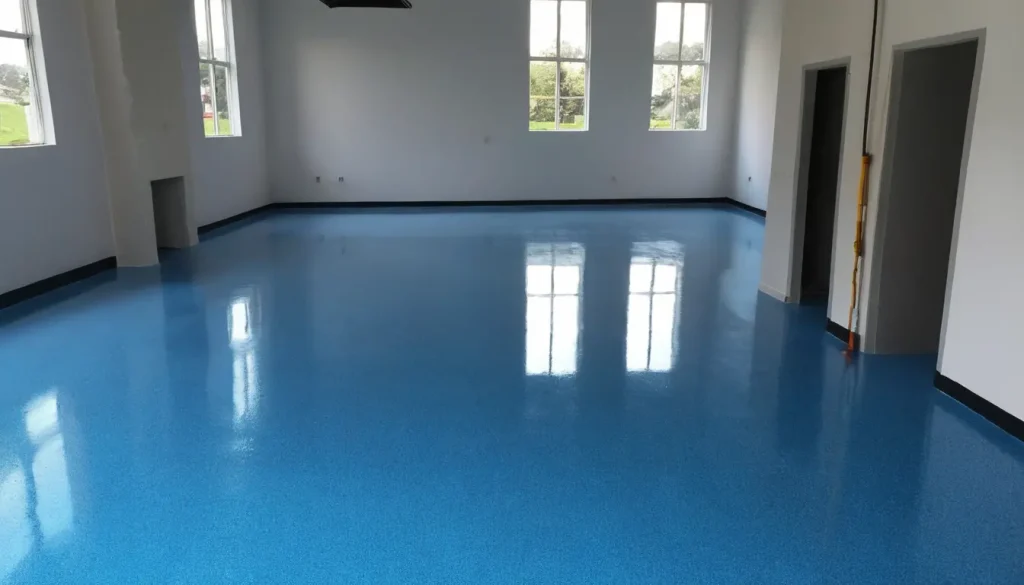The epoxy business is a rapidly growing industry, especially with the increasing demand for high-quality flooring solutions in both residential and commercial spaces. As more people look for durable and aesthetically appealing flooring options, the need for epoxy flooring companies and epoxy garage floor businesses has soared. If you’re considering entering the epoxy business or are already running a company in this field, this guide will provide valuable insights on how to start, grow, and succeed in the epoxy flooring and resin business.
What is the Epoxy Business?
The epoxy business revolves around providing high-performance, durable epoxy coatings for floors, countertops, and a range of surfaces. Epoxy is a resin material mixed with a hardener to create a strong, glossy finish that is both resistant to wear and easy to maintain. Whether it’s applied to garage floors, basements, or commercial spaces, epoxy flooring has gained immense popularity due to its long-lasting, durable, and aesthetic qualities.
Epoxy flooring companies offer services such as floor coatings, installation, and repairs. The business typically involves working with concrete, wood, or metal surfaces and transforming them into high-end, smooth, and resistant surfaces. As the demand for industrial and residential epoxy applications rises, many entrepreneurs have found success by starting epoxy businesses. This could range from garage floor epoxy businesses to specialized countertop coating services.

The Growing Demand for Epoxy Flooring
As homeowners and businesses increasingly look to create clean, durable, and aesthetically appealing spaces, epoxy floor coatings have become a top choice. For garages, basements, and commercial spaces, epoxy is a cost-effective solution that withstands heavy traffic, stains, and moisture. For businesses, especially those in the food industry or manufacturing, epoxy flooring offers long-lasting protection and easy-to-maintain surfaces that resist chemicals, grease, and spills.
Garage floor coating companies and epoxy flooring businesses have capitalized on this growing trend, offering installation, maintenance, and custom designs. Many customers search for terms like “epoxy floor company near me” or “epoxy garage floor company” to find local businesses that can meet their specific needs. This creates a promising market for entrepreneurs interested in starting an epoxy business, whether focusing on garages, commercial spaces, or even food trucks that require durable flooring solutions.

Is Epoxy a Profitable Business?
One of the most common questions prospective entrepreneurs ask is, “Is epoxy a profitable business?” The short answer is yes, but like any business, success depends on the strategy you implement. Epoxy floor businesses can be highly profitable, with many companies seeing substantial returns on investment due to the relatively low overhead costs compared to other types of businesses. The key factors that make the epoxy business profitable include:
- Growing demand for epoxy services: From residential garage floors to large commercial spaces, epoxy is in high demand.
- Low startup costs: Compared to other businesses, starting an epoxy business can be relatively affordable, especially if you begin as a small local operation.
- Repeat business: Many clients need periodic maintenance and re-coating, offering opportunities for repeat business and long-term customer relationships.
While the epoxy business can be profitable, you must ensure that you price your services appropriately. The costs of materials, such as epoxy resin and labor, must be factored into the pricing. The potential for high profits exists, especially if you target high-value projects like commercial epoxy flooring or specialize in premium services like metallic epoxy floors or epoxy countertops.
Related Article: All About Epoxy, What it is and why it is used for?
How to Start an Epoxy Business
Starting an epoxy business involves several key steps to ensure success in this competitive industry. Here’s a breakdown of the essential steps to get you started:
1. Research the Market
Before launching your epoxy business, research the local market. Find out who your competitors are, what services they offer, and how much they charge. Understanding the demand for epoxy garage floor companies or epoxy flooring businesses in your area will help you define your target market and services.
2. Develop a Business Plan
A solid business plan is critical for any business. Outline your goals, services (such as epoxy garage floor coating, basement epoxy floors, or countertop epoxy), target market, and pricing strategy. A business plan helps you stay focused and ensures that your business has a roadmap for growth.
3. Legal Requirements and Licensing
Register your business, obtain the necessary permits, and ensure you have the required insurance coverage. You’ll also need to familiarize yourself with the specific regulations regarding the installation of epoxy flooring in your area.
4. Purchase Equipment and Materials
Invest in high-quality epoxy materials, equipment, and tools needed for the job. For instance, you’ll need epoxy resin, floor grinders, rollers, and squeegees. You may also need specialized equipment for certain services, such as epoxy countertop installations or commercial epoxy floor coatings.
5. Marketing and Branding
Building a brand is essential for standing out in the competitive market of epoxy flooring. Create a professional website, use social media, and consider advertising in local newspapers or on platforms like Google Ads to attract customers searching for terms like “epoxy business near me” or “best epoxy garage floor companies.”
6. Deliver Exceptional Service
To gain repeat clients and generate positive word-of-mouth, deliver high-quality services. Whether you’re working on a garage floor epoxy installation or a residential epoxy flooring project, the quality of your work will be the key to building your reputation.

Challenges and Considerations in the Epoxy Business
Although starting an epoxy flooring business can be rewarding, there are several challenges to consider:
- Initial Investment: While startup costs can be low, buying the necessary materials and equipment can still be a significant initial expense.
- Labor Intensive: Epoxy flooring installation can be a physically demanding job, requiring both skill and effort to ensure a flawless finish.
- Competition: There are many epoxy floor companies already in operation, so differentiating your business through unique offerings like metallic epoxy floors or custom epoxy designs can help you stand out.
How Much Can You Make with Epoxy Flooring?
Many people wonder how much money they can make doing epoxy. Your income potential depends on the scale of your business, the services you offer, and the local demand. For instance, epoxy garage floor businesses can earn anywhere from a few hundred to several thousand dollars per project, depending on the size and complexity of the job. Commercial projects can generate even more revenue, making it a lucrative venture if you target the right market.
Is Epoxy a Good Investment?
Considering the growing demand for epoxy floor coatings and epoxy garage floor installations, the answer is yes—epoxy is a good investment. With proper marketing, a solid business plan, and a commitment to delivering high-quality services, you can build a profitable business in the booming epoxy industry.
Epoxy Business – Amharic Guide
For more business plan ideas join our telegram channel
Final Thoughts on the Epoxy Business
The epoxy business offers tremendous growth opportunities for entrepreneurs looking to capitalize on the increasing demand for durable, low-maintenance flooring solutions. Whether you’re interested in starting an epoxy countertop business, offering epoxy floor coating services for garages, or focusing on commercial applications, the possibilities are endless. With the right approach, an epoxy business can be a profitable and fulfilling venture.

Good